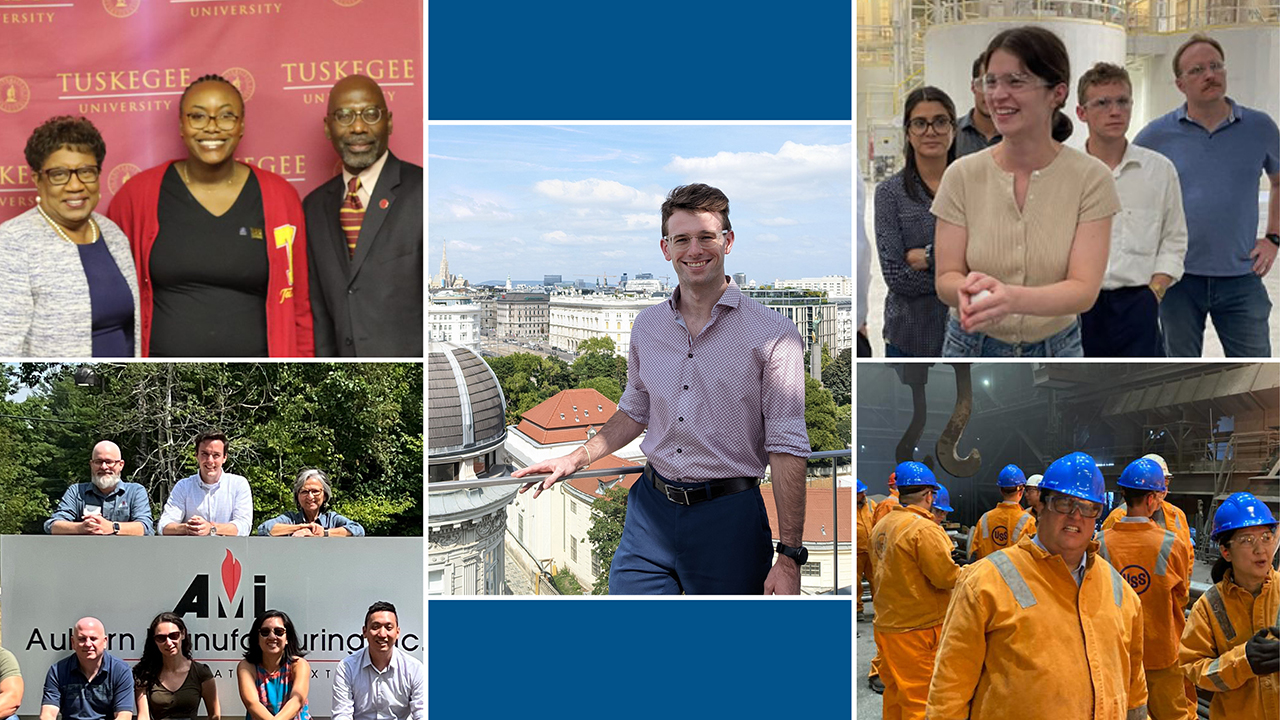Hometown Heroes: Trade Specialists Shine a Community Spotlight on Manufacturing

October 26, 2022
Lisa Wang is the Assistant Secretary of Commerce for Enforcement and Compliance
October is National Manufacturing Month, and communities across the country are celebrating the important contributions of America’s most enduring and rapidly evolving field. Every aspect of our lives and livelihoods is touched by the people and places that produce our goods.
At the International Trade Administration (ITA), we help U.S. manufacturers thrive in global trade and ensure a level playing field at home and abroad. ITA’s Enforcement and Compliance (E&C) team enforces U.S. antidumping and countervailing duty laws to protect our industries from unfair pricing and practices of foreign actors who don’t play by the rules.
Over the past few months, I’ve had the opportunity to see our trade laws in action at manufacturing sites stretching from Appalachia to Alabama as part of a series that we’ve been calling “Hometown Tours.” On each tour, we visit a city considered home by one of our trade specialists and a U.S. company impacted by our work.
Our first stop in Pittsburgh, Pennsylvania, can be credited to Norbert Gannon. Gannon, who grew up near U.S. Steel’s Edgar Thomson Plant, saw the integrated steel mill’s evolution throughout his life and marveled at its longevity. Built in the 1870s, it outlasted every other steel mill subsequently built in the “Mon Valley.” Gannon had always wanted to visit the mill but had never stepped foot inside. After a career dedicated to learning about and crafting policy that implicated U.S. manufacturers of steel—nearly 50% of E&C’s cases deal with some form of unfairly traded foreign steel product—Norb was finally able to tour his neighborhood steel facility.
Having finally seen the facility, Gannon said, “I can now check this off my bucket list!”
Next, in Portland, Maine, Tom Conley showcased Auburn Manufacturing Inc. (AMI), a woman-led factory that produces high-performance textiles that provide protection from extreme temperatures. Both AMI and nearby Sappi North America—a wood yard and paper mill—are companies that in recent years have been affected by unfair trade practices from China and other countries. Through the enforcement of our laws, ITA has helped these companies stay competitive in the international marketplace while also supporting hundreds of local jobs.
Conley said, “These two businesses alone show that Maine is much more than just ‘Vacation Land’ and seafood—though we do have great seafood. It was fantastic to see firsthand the tremendous impact ITA has had on the businesses I grew up with.”
In Lexington, Kentucky, Kathryn Krishan gave a perfect example of a resilient U.S. supply chain with a visit to Leggett & Platt, where 100% of the components that go into the innerspring unit—including the wire that makes the innerspring coils—are manufactured by Leggett & Platt. Through vertical integration and strategic application of U.S. trade laws, Leggett & Platt maintains a global company that has employed generations of Kentuckians.
Krishnan said, “My work in D.C. and my hometown in Kentucky have always felt very distinct. It wasn’t until I heard someone who sounds like my Papaw explain how important our work in ITA was to him and his family that I could bridge that gap. I hope that my colleagues were able to see the vibrant and proud communities that make what we do worth it.”
In Alabama, Jayden Graham-White arranged a visit to Globe Specialty Metals. As result of successful trade enforcement, Globe recently reopened its Selma-based plant to continue a proud legacy of producing silicon metals that support sectors ranging from cosmetics to energy and semiconductors. What made this tour more special was visiting the nearby campuses of some distinguished historically Black colleges and universities and predominately Black institutions—Alabama State University, Auburn University at Montgomery, and of course Graham-White’s alma mater, Tuskegee University.
Graham-White said, “It was an honor to be able to see firsthand the work that these people do every single day to keep these factories, cities, and ultimately this country running. To return to Alabama serving the communities that raised me and encouraging and supporting diverse students to follow suit was an amazing experience that really brings meaning to the title public servant.”
And most recently, Wisconsin-native, Zachary Le Vene highlighted the local and global impacts of trade remedies at a visit to Renewable Energy Group (REG), a producer of sustainable biofuels. After E&C put duties in place to counter unfairly subsidized and priced biodiesel from Argentina and Indonesia, REG was able to invest in its refining capacity at facilities like the one E&C visited in Deforest, Wisconsin.
Le Vene said, “It was heartening to witness firsthand REG’s commitment to bettering the local community at multiple levels, including both farmers and restaurants who provide the company with ‘waste’ products as feedstock. REG’s innovative, yet practical process of using renewable feedstock and existing infrastructure is inspiring to see in my home state. Although Wisconsin is often known for its beer and cheese, companies like REG are putting it on the map as a center for sustainable, innovative manufacturing.”
ITA’s Enforcement and Compliance team is here to support companies who need our help. If you are facing unfair competition from unfairly priced imports, we offer petition counseling services that are free and confidential. Also, if your U.S. company is facing export barriers, we are available to help.
It’s not every day that those of us who work behind the scenes get an opportunity to see how the work we do supports American workers and communities. I am grateful to these individuals for taking us to meet the people and see the places where our work resonates most.